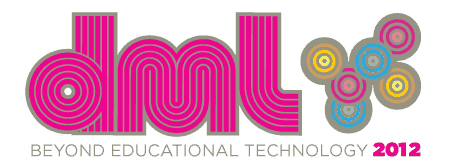DML: Exploring Locality: A Community-Based Social Network for Youth
Youth in urban areas can grow up isolated from one another, separated by affiliations with a turf, a gang, an ethnic group. This panel will report on a project that exploited the potential of social media to link urban youth across local spaces that sometimes represent vast divides. As such, it addresses the conference themes of innovative digital practice and research that expands access.
A team of researchers and educators joined forces last year to link 75 young people aged 8-13 in five elementary and middle schools located in Oakland, California and Richmond, California. These communities and schools, though contiguous geographically, were worlds away in terms of youth’s knowledge and perceptions of each other. We created a 6-week digital and social media class in the schools’ after-school programs, designing a networked pedagogy that fostered kids’ passions and foregrounded peer-to-peer learning. The young people created digital artifacts like short movies that they shared across the network, exploring issues around ‘locality’ with one another. That is, these young people considered where they were ‘from’ in many senses--familial, geographical, communal, and ideological--and explored how they were connected to other young people and what it meant to connect via social media.
This project drew on our previous design-based research to create and study an international social network for older youth and took advantage of a custom-built social network made just for kids (space2cre8.com). Exploring the nature of locality/connectivity across a range of spaces often viewed as separate (offline/online, school/afterschool, school/community/home, city/neighborhood/region), we offer evidence of children’s social and cognitive growth in terms of empathy, vocabulary development, and semiotic awareness, and we illustrate as well the challenges of conducting this kind of work with new media in old school settings. Our findings are drawn from a variety of research measures: pre- and post-interviews, surveys, field notes, video data, collection of artifacts, composing pre- and post-measures, and automated network analytics (tracking youth’s participation online).
Rather than a traditional set of paper presentations, the session will open with a short youth-driven movie that introduces the network and the theme of locality, giving the audience a sense of the learning spaces youth created and inhabited. Several children then will present their work, showcasing their digital projects and, with their teachers, explaining how these projects afford particular learning opportunities. To anchor this discussion, we will watch a series of ‘learning moment’ vignettes, short video recordings youth filmed when they felt they were learning something. School principals and after-school site coordinators as well as community partners and parents will then respond, discussing how the notions of learning that teachers and students presented fit into but also stretch their understandings of learning and knowing across different spaces. Researchers will frame this discussion in terms of the project’s overarching findings about connected learning, looking especially at youth’s online communication. Finally, discussant Chris Dale, a YouTube/Google PR manager, will discuss how this project helps illuminate efforts to educate people to be savvy social networkers.



